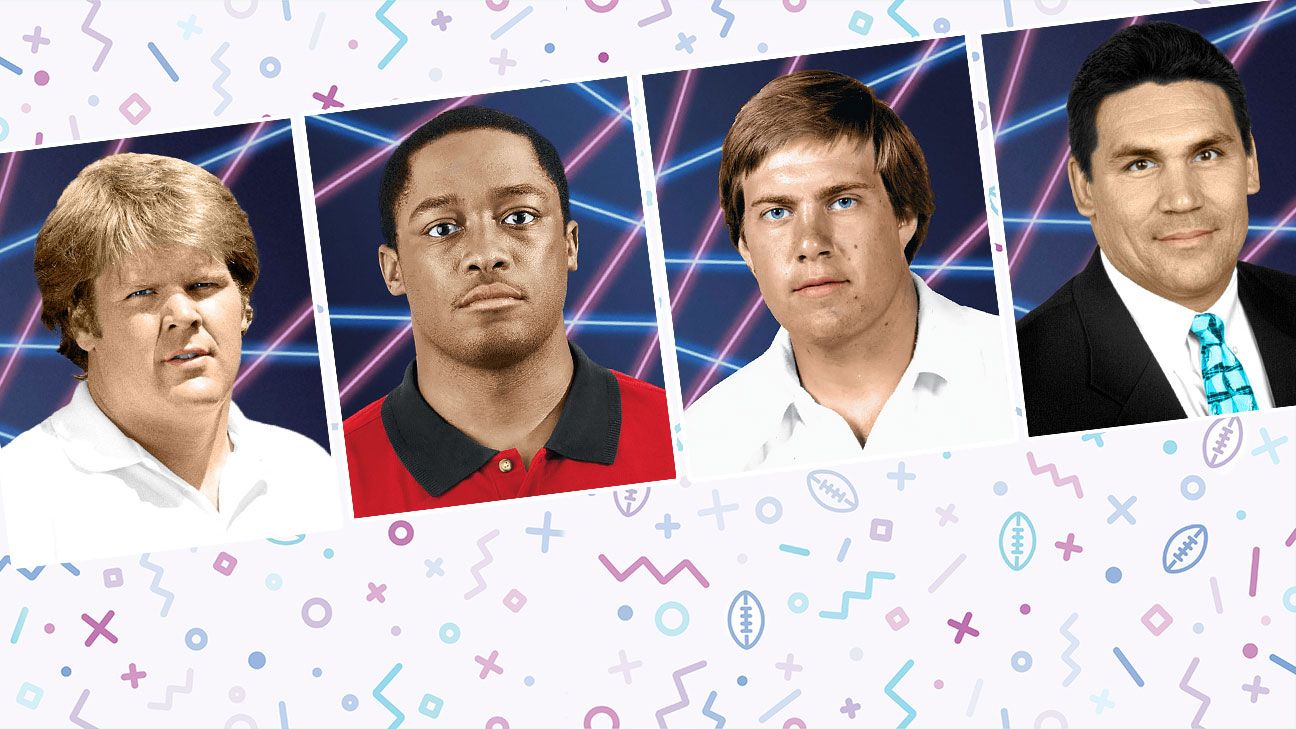The path to NFL head coach is a unique story for all 32 men in those jobs. But almost all of them started at the bottom, where no task is too menial — fetch coffee, cut up videotape, paint the end zones, even wash the head coach’s car. And all of those experiences helped prepare them to reach the pinnacle of their profession.
Our NFL Nation reporters asked all 32 head coaches about their first jobs and what they learned from the experience.
JUMP TO A COACH:
Kingsbury | Quinn | Harbaugh | McDermott | Rivera | Nagy | Taylor | Kitchens | Garrett | Fangio | Patricia | LaFleur | O’Brien | Reich | Marrone | Reid | Lynn | McVay | Flores | Zimmer | Belichick | Payton | Shurmur | Gase | Jon Gruden | Pederson | Tomlin | Shanahan | Carroll | Arians | Vrabel | Jay Gruden
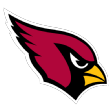
First football job: University of Houston under Kevin Sumlin as the offensive quality control coach in 2008 and 2009
What he learned: Kingsbury learned humility as an offensive quality coach. “You go from being a pro player to making $400 a month and you’re 20th on the totem pole, and you really have to do whatever you have to do and whatever they ask you to do,” Kingsbury said. That job helped Kingsbury fall in love with coaching while teaching him about what it would take to succeed as a coach in the college ranks. Early in his time at Houston, Kingsbury learned a valuable lesson. He was still trying to make it as an NFL quarterback, so he kept his arm sharp by throwing to the Cougars receivers — which constituted an NCAA violation. “That was a bad deal,” Kingsbury said with a laugh. — Josh Weinfuss
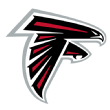
First football job: Volunteer assistant defensive line coach at William & Mary in Virginia in 1994
What he learned: Quinn’s hands-on approach as a coach really developed during his one season at William & Mary. Quinn, a defensive lineman at Salisbury State, knew about the classroom aspect of coaching, but his one season at William & Mary under head coach Jimmye Laycock, defensive coordinator Russ Huesman and defensive line coach Mike London taught him much more. “I had never drawn a card or broken a tape down,” Quinn said. “I learned a lot. The on-the-field work is really important. The coaches I enjoyed the most were the ones that were teaching us on the field, but I didn’t know the amount that went into it behind the scenes. I hadn’t had to break a game down or do any of that. I learned all that stuff.”
Quinn also learned the importance of being resourceful. Coming straight out of college and stepping into an unpaid position, he didn’t necessarily want to hit up his parents for “another year on their scholarship,” so he slept on a couch in the William & Mary locker room when he started the job. “It was just through the summer, before I got a studio apartment,” Quinn said. “I just had my bag of stuff. That’s all I needed.” — Vaughn McClure

First football job: Started his coaching career in 1984 at the age of 21 as a graduate assistant for his father, Jack, at Western Michigan
What he learned: John Harbaugh wasn’t sure he would get into coaching after receiving his political science degree from Miami (Ohio). He originally thought he would go to graduate school. “My dad said, ‘You’re not doing anything right now. Why don’t you help me coach and see what you think?'” John Harbaugh said. “That’s where I fell in love with coaching.” Harbaugh worked for room and board, which meant living at home. His father didn’t have a full staff, so he was thrown into coaching running backs.
A defensive back in college, Harbaugh never played running back. “What I learned is how much I didn’t know,” Harbaugh said. “You always think you know everything, especially when you’re 21 years old. I found out that I really didn’t know anything.” One lasting memory from his first coaching job: “Driving to work every day with your dad is pretty special,” Harbaugh said. “Not a lot of people get to do that.” — Jamison Hensley
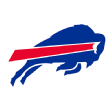
First football job: Graduate assistant at William & Mary in 1998
What he learned: McDermott, a business finance major as an undergraduate, accepted a job at PricewaterhouseCoopers during the fall of his senior season as an all-conference safety in 1997. The following spring, McDermott was asked to remain with the Tribe as a graduate assistant and help coach defensive backs in 1998. He accepted, but he soon learned being a coach meant putting aside social relationships with his friends — some of whom still played on the team. “I went from five years of playing there to trying to transition into a coach,” he said. “The social life that goes on when you’re a student — in particular a fifth-year [senior] — is different than when you’re trying to carve out a career for yourself.”
After one season at William & Mary, McDermott’s journey took him to the Eagles, where he latched onto then-coach Andy Reid and climbed the ladder. McDermott was hired by the Bills in 2017. “I was fortunate to be around a lot of good coaches at a young age, starting with Coach [Jimmye] Laycock,” McDermott said. “I learned just to keep my mouth shut, work hard and know my role. It wasn’t a very glamorous job.” — Mike Rodak
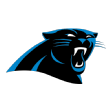
First football job: Volunteer for the Bears going into minicamp in 1997
What he learned: Halfway through the Bill Walsh NFL Minority Coaching Fellowship, Rivera wrote a job description for a defensive quality control coach position and took it to Bears coach Dave Wannstedt. “I was going to make them need me by working as hard as I could,” Rivera said. “I did everything from taking coaches’ cars to get washed and gassed, picking up lunch. I did all the quality control breakdowns. Basically, from the ground up. I learned what it took to be successful. You had to make yourself indispensable, where they had to have you around to help the team.
“That’s what I wanted to do. So I learned from the bottom up. I learned to be patient. That’s one thing a lot of today’s young coaches don’t understand is that you have to be patient. You have to earn your stripes. A lot of these young guys are getting elevated into positions that quite honestly, in my opinion, they’re not ready for. They make a lot of mistakes, whether it’s a positional coach, coordinator or in some cases a head coach. You’re going to make mistakes. Unless you’ve learned to deal with them, you’re going to make mistakes.” — David Newton
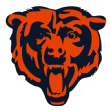
First football job: Coaching intern with the Eagles in 2008
What he learned: “I remember being blown away at the first staff meeting coach Andy Reid had before we went to training camp. I just remember pinching myself thinking I’m sitting in here with Coach Reid as he’s running his staff meeting going over the scripts for practice, the schedules, the meeting times, and I was just amazed at that very first meeting. I was in awe. When you get to training camp and you practice every day, it’s those nighttime meetings that you attend where every position coach is in there going over the evaluations of how the players were practicing.
“I just remember that I was so concerned about my cell phone going off in there — and I wasn’t smart enough to leave it outside the room — that one time I remember taking the full battery out of the back of the cell phone so I knew it wouldn’t go off. I didn’t want to be that guy. But it was so neat to hear how Coach Reid took in all the player evaluations from the other coaches.” — Jeff Dickerson

First football job: Texas A&M University, where he served as offensive graduate assistant and tight ends coach from 2008 to 2011 under head coach Mike Sherman.
What he learned: Taylor has his own office now, but when he was a grad assistant just out of college at A&M, the digs weren’t so great. He shared an office he described as “the size of a table” with future Bengals assistant offensive line coach Ben Martin. Working for father-in-law Mike Sherman wasn’t the easiest thing for a young coach, but it taught Taylor an important lesson: It’s OK not to be the one talking all the time.
“The things that I learned back then were to shut your mouth. You think you have all the right answers as a young coach — or as a young reporter, or in any profession — and you quickly learn that sometimes these guys with experience know what they’re talking about,” Taylor said. “Don’t be quick to speak and say things that you think are tried and true and perfect, when in reality, sometimes you need to sit back. Over the course of my career, I was fortunate to work with Mike Sherman, who pointed that out to me. I was doing that a little bit. He gave me the chance to learn, and sometimes you have sit back and listen to everyone’s opinions.” — Katherine Terrell
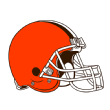
First football job: Offensive assistant at Glenville State College in 1999
What he learned: To get his coaching career started, Kitchens went from quarterbacking the Alabama Crimson Tide to performing grunt work in Glenville, West Virginia. He did get to work under Rick Trickett, a longtime successful college offensive line coach whom Kitchens said “basically taught me everything I know, up to this point still, for the run game.”
But also while there, the lesson of taking pride in one’s work — no matter how menial or tedious the task — was reinforced to him.
“I learned how to do laundry for a team,” Kitchens said. “I learned how to pick up rocks [off the field] before we practiced. I learned how to cut the grass with a bush hog, which I already knew how to run a bush hog. And then I learned how to paint the field on Friday night before we played on Saturdays. So I had to do all those things. And that was for $500. … But that was the good days. They really were.” — Jake Trotter
“I learned how to do laundry for a team. I learned how to pick up rocks before we practiced. I learned how to cut the grass with a bush hog … And then I learned how to paint the field on Friday night before we played on Saturdays. … that was the good days.”
Freddie Kitchens
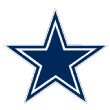
First football job: Quarterbacks coach for the Dolphins in 2005
What he learned: Garrett grew up in a football family with his father, Jim, serving as an NFL assistant coach, college head coach and NFL scout. Garrett could consider his first coaching job as an unpaid assistant when his father’s players came to the family’s Monmouth Beach, New Jersey, house for some training.
“I reflect back to so many conversations we’ve had that I had no idea of what he was talking about, and now that I’m in the position I’m in now, I’m like, ‘Now I get it,'” Garrett said of his father. “So there’s great wisdom that I go through the years from him, and just a huge part of my life.”
Garrett did not give coaching a thought until his final year as a player with Tampa Bay in 2004, and he got his first paid coaching gig in 2005 with Nick Saban as the Dolphins’ quarterbacks coach. He still refers to the notebooks he filled while working for Saban.
“I can’t tell you how fortunate I was to be able to be in that situation as a first-year coach,” Garrett said. “Being in the staff room, he’s at the head of the table, I’m right to his side and just watching him conduct a meeting, watching him run a program, run a practice. He’s just an unbelievable football coach. I learned so much. I’ve got notebooks and notebooks of notes from that time together. He’s still a friend. He’s still a mentor. And he’s had a huge impact on me.” — Todd Archer
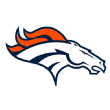
First football job: Assistant coach (running backs, linebackers) at Dunmore High School in Pennsylvania in 1979
What he learned: “Back then, I was actually student-teaching at the time, so I had teaching duties throughout the day and then showed up at 2:30 to coach football,” said Fangio, who thinks he made $1,080 in his second season as a coach. “Back then, you’re teaching 14-, 15-, 16- and 17-year-old guys, and they had really no idea about what football is or isn’t. So, right from the get-go, you’re teaching techniques and fundamentals and how to execute and, obviously, how to play hard and playing smart. And that holds true on all levels, and I’ve always carried that with me and always will.
“If your fundamentals fail, you’re going to fail. You may get bailed out for a play or two in one game, but over the course of a season, it will come back to haunt you, and you won’t be a good team. … But I always knew I wanted to do something in sports, and once it became very obvious it wouldn’t be as a player, I turned my attention to coaching, and I loved football coaching the most. Because you have more of an impact coaching football than you do in other sports, I believe, on the individual and on the team.” — Jeff Legwold
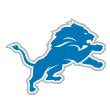
First football job: Graduate assistant/assistant offensive line coach at Rensselaer Polytechnic Institute in New York in 1996
What he learned: Needing to finish a couple of classes, Patricia decided to help out in the summer and fall of 1996 as a way to stay around the game. And it also was a way to start work on his master’s degree. Then he started working with his successor on the RPI offensive line, Jimmy Schertzer, and it changed his path. He spent the year teaching Schertzer everything he knew about blocking and fundamentals. On an inside run in a game, Patricia saw everything culminate.
“He made this awesome block. We scored. We won the game — and to see the expression on his face, the happiness and the joy that he had, it was way better than playing,” Patricia said. “It was, like, way better. The light bulb went off, like this is really cool. To be able to help somebody achieve something and to see them happy and a success, it flipped it for me. Just flipped it. It allowed me to move past not being able to play anymore and really coach and help young guys.” — Michael Rothstein
“To be able to help somebody achieve something and to see them happy and a success, it flipped it for me. … It allowed me to move past not being able to play anymore and really coach and help young guys.”
Matt Patricia
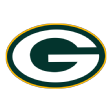
First football job: Offensive assistant at Saginaw Valley State in Michigan in 2003
What he learned: LaFleur technically hadn’t finished his college duties at this point. While his playing career was over — he played quarterback at Saginaw Valley State — he still had to student-teach. While doing that, he served as an offensive assistant.
“I worked with the receivers,” he said. “I didn’t even travel to all the games; I went out to practice, did some work there, some computer. But I think the first real crack at [coaching] was at Central Michigan, from Brian Kelly.”
Whether it was at Saginaw Valley State or CMU, LaFleur was a grunt.
“I learned how to do things at the lowest level in terms of being a grunt, doing the dirty work, a lot of the computer input, a lot of late nights,” he said. “But it gives you an appreciation for that job, and it makes it that much better when you are a position coach and you start to climb up the ranks. I knew I wanted to be in football in some regard. I actually interviewed for a high school head job, but in my heart of hearts, I knew I wanted to coach. I wasn’t even thinking about the NFL. It just kind of fell into my lap.” — Rob Demovsky
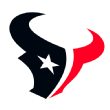
First football job: Assistant coach of the freshman team at St. John’s Prep in Danvers, Massachusetts, in 1988
What he learned: Bill O’Brien played college football at Brown but could not enroll until January 1989. So, with a free fall semester, O’Brien spent his days working at a lumber yard and his afternoons and evenings as an assistant coach on the freshman team at the school from which he had just graduated. While O’Brien primarily worked with the freshmen, he also spent Saturdays charting plays for the varsity team. O’Brien said he had known from a young age that he wanted to be a coach, but his season at St. John’s made him love it even more.
“I knew I wasn’t a very good player, but I loved the strategy of the game,” O’Brien said. “I knew that I wanted to be a coach. And that was my first opportunity to do it, and I absolutely loved it. I couldn’t get enough of it.” — Sarah Barshop
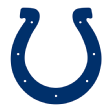
First football job: Volunteer coach at Wingate University in North Carolina in 2005
What he learned: “No matter what level you’re on, it’s about connecting with players. When a player feels like you’re making him better, they respond. It doesn’t matter what the level you’re at. Nobody loses that look,” Reich said. “When you’re trying to get better at something, you’re taking lessons. Whether it’s golf lessons, tennis lessons, coaching football and you’re getting coached, and then all of a sudden you make a right move or do the right thing, you can feel it. You can see that in the player when they see it.”
Reich, whose NFL coaching career started as an intern with the Colts in 2006, learned a lot from his brother, Joe Reich, Wingate head coach for the past 18 years.
“My brother, even though he’s my younger brother, I’ve always looked up to him. My brother is one of the best coaches I know,” Frank Reich said. “Watching him do his work. Watching the way he handles his business. Staying connected with him through the years. You’re influenced by all the coaches you’ve been around, and I’ve had the good fortune of being influenced by many of them.” — Mike Wells
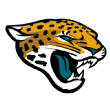
First football job: Tight ends coach at Cortland State in New York in 1992
What he learned: “I went into it thinking, ‘Holy cow, all these things that I know that are in my mind, I’m going to be able to give these young guys, and we’re going to be unbelievable,'” said Marrone, who wasn’t paid at Cortland and survived on his savings for two years. “And what I found early on in coaching was that I tried to get them to a level too quick, and I really did a poor job of training them in the foundation or the fundamentals. So when I look back at my coaching career, I look back at all the mistakes I made that if I would have started at a higher level and I made those same mistakes, I would have been fired, and rightly so.
“I made those mistakes, but I was able to overcome them at those levels. Not to say that it was right; I’m not saying that. But I learned, and you learn throughout the years of, ‘Hey, what is going to be my style? What am I going to believe in? What are going to be my principles?'” — Michael DiRocco
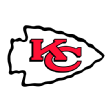
First football job: Graduate assistant coach at Brigham Young University in 1982
What he learned: Reid said he hadn’t considered going into coaching after the end of his playing career at BYU in 1981. But he was invited to be a graduate assistant for the Cougars by head coach LaVell Edwards for the next season, and by the end of the year was hooked. Edwards sent Reid into the coaching world the next year with some words of wisdom.
“He said that when you come to the head coach with a problem, have a well-thought-out answer,” Reid said. “You can use that in all facets of life. Have a plan. The head coach might not agree with you on it, but you’re coming to him with an answer. If he has something different, stick with that and go 100 miles an hour to do it. That’s a huge lesson, and as simple as it is, it’s big for marriage, it’s big for raising kids, dealing with the media and so on. It was great advice.”
After 20 years as an NFL head coach, Reid seeks input on all facets of the operation from all of his assistants, but with one stipulation: that they feel strongly about what they’re bringing. — Adam Teicher
“[LaVell Edwards] said that when you come to the head coach with a problem, have a well-thought-out answer. You can use that in all facets of life. Have a plan.”
Andy Reid
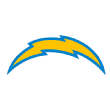
First football job: Offensive assistant and assistant to special teams with the Broncos in 2000
What he learned: Lynn, who played six years in the NFL, said he learned to be detail-oriented during his first coaching stint under Broncos coach Mike Shanahan; it was the start of nearly two decades of coaching in the NFL. Although Lynn was not part of the inaugural Bill Walsh minority coaching program, he played for Walsh while in San Francisco and was aware of the legendary coach’s efforts to create more opportunities for minorities in coaching.
“In this game, you’re coaching all of these elite athletes, and it’s the little things that make the biggest difference,” said Lynn, who initially saw himself coaching at the high school or college level. “It’s not always something that’s difficult or complex. It’s just the simple things in the game that make the biggest difference each and every year; those are the things that sometimes people overlook. It doesn’t have to be very complex.” — Eric Williams

First job in football: Buccaneers offensive assistant in 2008
What he learned: “My first job, it’s embarrassing to admit a little bit, I coached camps and stuff like that growing up, you know, at my high school. But I was very fortunate to get right in with the Bucs. I was basically an assistant to the quality control. I was in the quality control, so running errands, doing everything you can. And you think back to that, and to be able to get involved right when you finish playing in college, working in the NFL, working under Jon Gruden, being around some of these great coaches that I’ve been exposed to, it’s almost embarrassing to admit, but that was a real blessing for me. And I really should probably thank my grandpa [John McVay] for that.” — Lindsey Thiry
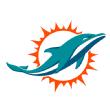
First football job: Joined the Patriots as a scouting assistant in 2004; one of his first roles was being “The Turk,” or as he calls it, the “Grim Reaper,” telling players to bring their playbook to the head coach on cut-down day
What he learned: Telling a player that his NFL dream is, in all likelihood, over is what many who’ve had that role, including Flores, would call the hardest part of the job.
“I don’t want to call it a life lesson, but there’s instances where you do everything right, and you work hard, and things don’t work out,” Flores said. “That’s part of life, and it ends up being life lessons for some guys. Whether they make it or don’t make it, I think it’s something that people need to know and understand: Things don’t always work out. I think that’s part of my job as a teacher, as an educator, as a leader, that adversity is going to be a part of everyone’s journey. When one door closes, another one is going to open up.”
Flores regularly gave undrafted free agents a true chance to make the team and contribute during his time as a Patriots assistant, and he plans to continue that in Miami. “There’s no complacency with those guys, because there can’t be any. They know their margin for error is slim. I wish everyone felt that way, but that’s not the case for whatever reason,” Flores said about UDFAs. — Cameron Wolfe
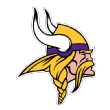
First football job: Assistant at Missouri from 1979 to 1980
What he learned: Once Zimmer’s playing days at Illinois State ended because of a neck injury, he spent a year as a graduate assistant at his alma mater, Missouri, before being hired as one of four part-time coaches. Zimmer got a taste of everything, from how to recruit to entrenching himself in the X’s and O’s of defense under coordinator Carl Reese. Missouri is where Zimmer also met Mike Price, who took him, Bob Bratkowski (who coached in the NFL for 24 years) and another part-time coach to Weber State in 1981, a move Zimmer credits as the true start to his career.
There, Zimmer spent eight years as a position coach (inside linebackers and defensive backs), which set him up for his first defensive coordinator job at Washington State. Zimmer spent 15 years in the college ranks before he moved into the NFL.
“I did it differently than a lot of people,” Zimmer said. “A lot of these guys [head coaches in the NFL], they go to one place one year, one place one year. I was at Weber State for eight, I was at Washington State for five, then I was in Dallas for 13. I took the longer path, whether good, bad or indifferent.” — Courtney Cronin

First football job: Staff assistant position with the Baltimore Colts in 1975. At the age of 23, he was named special assistant to head coach Ted Marchibroda.
What he learned: “A lot of X’s and O’s, but it really wasn’t the X’s and O’s. It was a lot more about just being a professional coach — preparation, work ethic, dependability, what goes into having a good football team,” Belichick said. “We were 1-4 and won our next nine straight. It was a young team that got off to a slow start, but we gained our confidence, and it taught me a great lesson in football of just keep working, keep fighting, just one day at a time. Don’t worry about the record at the end of the year. Just have a good day, have another good day, win this week, and then move on to the next week. That’s what we did in 1975.
“They were 2-12 the year before. They were terrible. But Ted gave the team great confidence, great leadership. Ted is one of the most positive people I’ve ever been around, always confident. Even when it was fourth-and-17, he was always sure we were going to make the play or do what we need to do. He was such a great person for me. I lived with Ted. We stayed in the same hotel, drove him to work every day, drove him home every day. We had our staff meetings in the car. We ate breakfast together. He was such a mentor.” — Mike Reiss
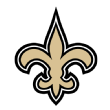
First football job: Graduate assistant at San Diego State in 1988 and 1989
What he learned: After a short-lived playing career, Payton landed a graduate assistant job at San Diego State. He almost didn’t make it there. He recalled that his old Chevy Cavalier broke down during the cross-country drive, and he couldn’t afford to get it fixed. But he found someone who could patch it together just enough to get him to San Diego.
Payton said a big part of that first job was running to get coffee or picking up lunches. But it was also about “making impressions” and building relationships. One of those relationships was with Curtis Johnson, who joined San Diego State’s staff a year later and still works with Payton as the Saints receivers coach today. Another was with Hall of Fame running back Marshall Faulk, whom Payton coached during his second stint at San Diego State from 1992 to 1993, after he left briefly for his first real full-time coaching opportunity at Indiana State.
“I think it’s the beginning of your lineage, your relationships,” Payton said. “Indiana State was a break because you get your first recruiting area, health insurance and you’re coaching. And then going back to San Diego State, that happened because they knew me as a GA.” — Mike Triplett

First football job: Graduate assistant at Michigan State in 1988
What he learned: Shurmur took a job under George Perles after serving as his starting center. His first lesson was how to slice reel-to-reel film. Shurmur remembers putting together a punt reel in preparation to play Rutgers and mixing the dull and shiny sides of the film. The result? The special-teams cut-up from the Rutgers-West Virginia game started playing backward on the screen. “So when it shined up on the screen, the state of West Virginia was backwards,” Shurmur said. “The next year they went to Beta tape. That was a bit nostalgic.”
Coaching was the natural progression for his career. He considers himself a grinder and a teacher.
“The thing I think I took from it was how much work goes into it, how much preparation coaches do behind the scenes,” Shurmur said. “To go out there and run a play, there is a lot that goes into it, from how you prepare to teach the players, the time you spend teaching them. So that is the first thing I was impressed by.” — Jordan Raanan
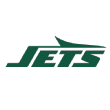
First football job: Undergraduate assistant at Michigan State from 1996 to 1999, under head coach Nick Saban
What he learned: On his first day on campus, Gase showed up at the football office, volunteering his services. He was given a project: He was handed a two-inch binder on the playcalling tendencies of the 1994 Cleveland Browns and was asked to replicate it on a computer program. From there, Gase immersed himself in the job, sometimes working 14 hours a day. Working out of his dorm room, he formatted the call sheets after every game, based on the play, down and distance, etc. “That’s all I did in college,” Gase said. “I almost failed out of college because of that, but it was worth it. I feel like I went to college for this.” He learned film breakdown, football concepts and teamwork, interacting with the likes of future NFL coaches Dean Pees, Josh McDaniels and Brian Daboll. He impressed Saban, who invited Gase to be a graduate assistant on his 2000 LSU staff. — Rich Cimini
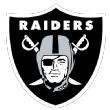
First football job: Graduate assistant at the University of Tennessee in 1986
What he learned: When he arrived in Knoxville as a 23-year-old son of a coach and former college backup quarterback at Dayton, the first thing Gruden had to learn was how to pace himself. “I learned I knew nothing and my only chance was to work hard and take notes,” Gruden said. “Walt Harris, at Tennessee, gave me no choice. Little things. Details. He always emphasized that preparation and presentation go hand in hand.” Harris was the Volunteers offensive coordinator under head coach Johnny Majors, and Gruden reported directly to Harris as Tennessee went 7-5 and beat Minnesota in the Liberty Bowl.
“First impressions go a long way, you know?” Gruden said. “The guys that helped train me to coach … I pattern my whole career after those guys, getting in a routine, how to study tape, trying to not underestimate any detail. Just trying to cover every base. You’ve got to do the preparation before you present the game plan.”
And he imparts those lessons today on his staff and players.
“I’ve got a real healthy respect for how hard it was to win a game,” Gruden said. “Then you realize how hard it is to make a first down. Then you realize how hard it is to pick up a blitz. How to attack fronts, handle different situations. So, yup, you betcha, man.” — Paul Gutierrez
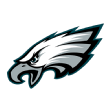
First football job: Head coach of Calvary Baptist Academy in Shreveport, Louisiana, in 2004
What he learned: Pederson’s dad got a job in Louisiana and moved his family there from Washington state after Doug graduated from high school. Pederson went to college at Northeast Louisiana (now Louisiana Monroe) and returned to his roots following a 14-year NFL career to try his hand at coaching. He led Calvary to a 33-7 record (8-3 in the postseason) during his four years there, an experience that he said helped mold him into the coach he is today.
“It was a lot of fun,” he said. “And I had to find out at that point if I really wanted to get into coaching and teach, and no better way than to teach a bunch of high school kids how to run a couple NFL plays. Four years later, I ended up working myself back into the National Football League [as a quality control coach for the Eagles] under Coach [Andy] Reid and have been here ever since.” — Tin McManus

First football job: Wide receivers coach at Virginia Military Institute in 1995
What he learned: Tomlin joined the VMI staff eager to impart his coaching acumen when he learned what he called a “very vivid” lesson. “Keep my mouth shut,” Tomlin said. And he quickly knew why: This was an apprenticeship, and the coaching staff needed dirty work done. “I thought I had pretty good football intellect. I was excited about being able to relate it to people,” Tomlin said. “I learned very quickly it was less about that and more about me learning the vocation, the minutiae, the drudgery.” After his first and only season with the Keydets, Tomlin, who played wide receiver at William & Mary, was assigned the arduous task of making cut-ups for the staff. Instead of exchanging ideas and building the foundation for the next year, Tomlin was working the triple-stack VHS — record, pause, next play.
Falcons coach Dan Quinn worked alongside Tomlin until midnight for days to prepare the cut-ups. Tomlin called it a “humbling experience,” but as he coaches the Steelers nearly 25 years later, he often recycles a coaching phrase he learned at VMI.
“‘We’re coaching it or we’re allowing it to happen’ is a term that stuck out to me,” Tomlin said. “It kind of reflects the responsibilities associated with our jobs and something I think about often. Forget your capabilities. It’s about what you’re willing to do. I apply that to my coaching. I also apply that to my teaching. The same applies to the playing of the game. Talents are less important than what they are willing to do to help us pursue what we’re pursuing.” — Jeremy Fowler
“I thought I had pretty good football intellect. I was excited about being able to relate it to people. I learned very quickly, it was less about that and more about me learning the vocation, the minutiae, the drudgery.”
Mike Tomlin

First football job: Graduate assistant at the UCLA in 2003
What he learned: Shanahan was fresh off his college playing career at Texas and just 23 when he landed in Westwood, California. The son of a two-time Super Bowl-winning coach, Shanahan quickly learned that a coach’s background didn’t matter near as much as his acumen.
“Back then, I was right out of college, so everything I wanted to show, I would put cleats on and try to demonstrate it,” Shanahan said. “You are still wanting to play, and it’s neat because you are close in age to all those guys, so you can relate with them a lot more. But you’re learning so much more, so you can help bring stuff to the table to them that you don’t always have that connection as you get a lot older.
“But I also didn’t know as much then. I was a GA and just getting into it. But I think you start to realize when you can help people and teach them stuff, and you can answer questions that help people, it doesn’t matter whether you’re a GA, a head coach, a quality control, a coordinator or whether you’re talking to a walk-on or Maurice Jones-Drew or Marcedes Lewis. If you can say something that helps people and makes sense to them, they will respect you and listen to you. That’s why I don’t think appearance or age or whatever matters. It’s if you know what you’re talking about. That’s why I don’t think you have to be a guy who MFs people if you know what you’re talking about. And I feel like I’ve always taken that from a young age and tried to be consistent with it.” — Nick Wagoner
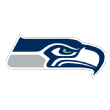
First football job: Graduate assistant at the University of the Pacific in California from 1974 to 1976
What he learned: Punctuality is one of Carroll’s three rules. But as a fresh-out-of-college 23-year-old, it was a personal weakness of his. And that was problematic as he tried to break into coaching as a graduate assistant working with receivers at his alma mater.
“What I remember about it is really having a hard time getting to meetings on time,” Carroll said with a chuckle. “I was just coming out of school. I didn’t have my act together. I had as much trouble just getting to the staff meetings and stuff like that, being on time and being where I was supposed to be. I was [like] a knucklehead player, you know? I wasn’t any better than those guys. I had to get my act together. Chester Caddas was tearing me up, my head coach back in the day. I couldn’t get to places on time.”
As players walk out of the locker room at Seahawks headquarters, a sign on the wall reminds them of Carroll’s three rules: 1) Always Protect the Team; 2) No Whining, No Complaining, No Excuses; 3) Be Early. “That’s why one of the rules of the program is to be early … because I found that you could coach that,” Carroll said. “That you could get better at it. So I have forever tried to help our guys understand the appreciation of respect and how respect is part of that, setting your schedule properly and having your priorities in order and all that kind of stuff. That was really what I needed to learn.” — Brady Henderson
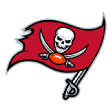
First football job: Graduate assistant at Virginia Tech in 1975
What he learned: Jimmy Sharpe, whom Arians played quarterback for at Virginia Tech, taught him the power of positivity and the impact it can have on confidence.
“We weren’t a very good team, but every time we took the field, we thought we were gonna win. And I had played for someone else who was negative, and I learned that very positive approach,” Arians said. “He coached us really, really hard, along with [defensive coordinator] Charlie Pell and [offensive line coach] Danny Ford and all the guys on that staff as assistants. I was lucky to break in with a bunch of guys that were quality coaches and became head coaches at other places — [quarterbacks coach] Nelson Stokley [became the head coach at Southwestern Louisiana], [assistant] Terry Don Phillips became the AD at Clemson — just learning how to do it right.”
Sharpe and his staff embodied the Bear Bryant philosophy of “Coach ’em hard and hug ’em later.” “I don’t think you can ever be negative in this game,” Arians said. “It’s coaching, not criticism. It’s coaching to get better to where we all want to be and that’s to win a championship.”
As for the hair? “Ahh, too much wind that day,” Arians said, laughing. — Jenna Laine
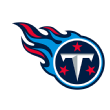
First football job: Linebackers coach at Ohio State in 2011
What he learned: Urban Meyer told Vrabel he was the “head coach” of Ohio State’s linebackers. That duty made Vrabel feel empowered because he was responsible for what 14 or 15 guys did both on the field and off the field, socially and academically. It also helped prepare Vrabel to hold a much larger group accountable as a team’s head coach. Vrabel now empowers his own assistant coaches to view their roles as head coaches of the position they coach.
“When you look at your job like that,” he explained, “it helps you grow and realize the magnitude of what a head coach would do for, in our case right now, 90, and in Ohio State’s case, 105 players. The way you teach is critical. Your staff has to be an extension of you.”
While at Ohio State, Vrabel learned how important it is to be a great teacher, because many of the players he worked with were young and had a lot to learn. His focus on teaching the details of the linebacker position by being a hands-on teacher has carried over to how he coaches players in the NFL and what he expects from his coaches. — Turron Davenport

First football job: Student assistant/graduate assistant at the University of Louisville in 1989
What he learned: Gruden summed it up in one word: humility. That’s what happens when you go from being the star quarterback who flirted with the NFL to a low-level assistant whose coach, Howard Schnellenberger, assigns you to wash his car. Gruden said it immediately put him in his place. After all, a year earlier he had led the Cardinals to an 8-3 record — their first winning season in a decade — and finished his career with 7,024 passing yards. A damaged knee prevented him from being drafted, so he took an unpaid job that provided room and board.
“I went from being the starting QB, team captain for two years in a row, to grunt work,” he said. “Checking curfews, making cut-ups, meetings and little say. But I also continued to study the game and plays and concepts and how to attack defenses.”
Gruden also had to prove himself in his first paid job as a coach, in the Arena League as the offensive coordinator for the Nashville Kats in 1997. “When you go from a player to a coach, it can be a little difficult,” he said. “I learned that as a GA at Louisville. Everyone was messing with me all the time. But you have to understand that when you put the coaching hat on, you have to get the respect of the players. That’s the most important thing: You have to earn the respect of them by your knowledge of what’s going on and by work ethic. That’s one step. And then step two is putting them in position to succeed.” — John Keim
